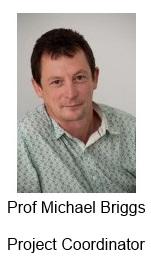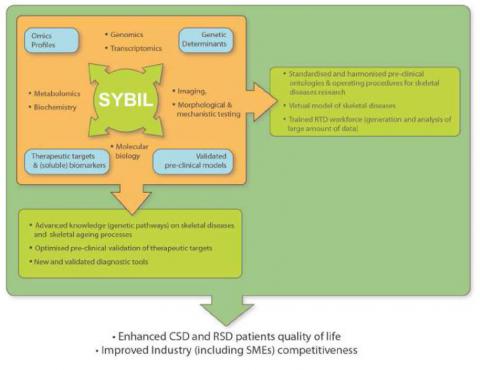- Home
- About
- Partners
- Newcastle University
- University of L'Aquila
- University of Manchester
- Alacris Teranostics GmbH
- University of Pavia
- Polygene
- Consiglio Nazionale delle Ricerche
- INSERM
- Certus Technology
- Charité Universitaet Medizin
- GATC Biotech
- University Medical Center Hamburg Eppendorf
- Evercyte GmbH
- University Hospital of Cologne
- PRIMM Srl
- University of Freiburg
- University of Antwerp
- Finovatis
- Research
- SYBIL at a glance
- Bone
- Growth plate
- Desbuquois dysplasia
- Diastrophic dysplasia
- MCDS
- Osteopetrosis
- Osteoporosis
- Osteogenesis imperfecta
- Prolidase deficiency
- PSACH and MED
- Systems biology
- SOPs
- Alcian Blue staining
- Bone measurements
- BrdU labelling
- Cell counting using ImageJ
- Chondrocyte extraction
- Cre genotyping protocol
- DMMB assay for sulphated proteoglycans
- Densitometry using ImageJ
- Double immunofluorescence
- Electron microscopy of cartilage - sample prep
- Extracting DNA for genotyping
- Grip strength measurement
- Histomorphometry on unon-decalcified bone samples
- Immunocytochemistry
- Immunofluorescence
- Immunohistochemistry
- Quantitative X-ray imaging on bones using Faxitron and ImageJ
- Skeletal preps
- TUNEL assay (Dead End Fluorimetric Kit, Promega)
- Toluidine Blue staining
- Toluidine Blue staining
- Von Kossa Gieson staining
- Wax embedding of cartilage tissue
- Contact Us
- News & Events
- Links
- Portal
About
 Welcome to the SYBIL (Systems biology for the functional validation of genetic determinants of skeletal diseases) project, a five year project funded by the European Commission.
Welcome to the SYBIL (Systems biology for the functional validation of genetic determinants of skeletal diseases) project, a five year project funded by the European Commission.
Skeletal diseases range from a large and diverse group of rare monogenic diseases (such as chondrodysplasias) to highly prevalent but genetically complex diseases such as osteoarthritis (OA) and osteoporosis (OP). The overall concept of this FP7-funded project is to study the genetic causes of both rare and common skeletal diseases in order to gain a better understanding of the disease processes and age-related changes. This fundamental research will help to deliver new and validated therapeutic targets that will eventually stimulate new therapies for these debilitating diseases.
SYBIL brings together a complementary group of world-class scientists, disease modellers, information technologists and industrialists that will deliver the ambitious objectives of this programme of research.
- Rare skeletal diseases (RSDs) are an extremely diverse and complex group of diseases that primarily affect the development skeleton. There are more than 450 unique and well-characterised phenotypes that range in severity from relatively mild to severe and lethal forms. Although individually rare, as a group of related orphan diseases, RSDs have an overall prevalence of at least 1 per 4,000 children, which extrapolates to a minimum of 225,000 people in the 27 member states and candidate countries of the EU.
- OA is the most common form of arthritis and the World Health Organisation estimates that 25% of adults aged over 65 years suffer from pain and/or disability from OA and it is ranked 12th for disease burden in the EU25 and 35-40 million people suffer from OA in Europe. OA is estimated to be 30-70% genetic with strong environmental risk factors of ageing, obesity and joint trauma.
- OP is also a polygenic disease in which the quality and density of bones is reduced leading to weakness and increased risk of fractures. OP and its associated fractures are a major cause of morbidity and mortality since the lifetime risk for OP fractures in women is 30-50% and in men is 15-30%.
- OA and OP have a rising prevalence with age and result in a loss of independence with a greatly reduced quality of life and represent a major healthcare burden of increasing scale in Europe with the projected expansion of the elderly population.
T he overall concept of this large-scale collaborative project is to functionally validate genetic determinants of common and rare skeletal diseases to gain a mechanistic understanding of disease processes and age-related changes and to deliver new and validated therapeutic targets. SYBIL brings together a complementary translational and transnational group of world-class scientists, systems biologists, disease modellers, information technologists and industrialists that will achieve critical mass to deliver the ambitious objectives of this programme of research.
he overall concept of this large-scale collaborative project is to functionally validate genetic determinants of common and rare skeletal diseases to gain a mechanistic understanding of disease processes and age-related changes and to deliver new and validated therapeutic targets. SYBIL brings together a complementary translational and transnational group of world-class scientists, systems biologists, disease modellers, information technologists and industrialists that will achieve critical mass to deliver the ambitious objectives of this programme of research.
Thank you for your interest in SYBIL– I know that together we will make a difference.
with best wishes
Michael Briggs, Project Coordinator Newcastle University, UK


